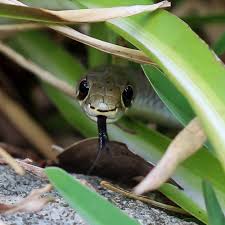Stamp: Year of the Snake 2025 (Indonesia 2025)
Year of the Snake 2025 (Indonesia 2025)
22 January (Indonesia ) within release Year of the Snake 2025 goes into circulation Stamp Year of the Snake 2025 face value 10,000 Indonesian rupiah
| Stamp Year of the Snake 2025 in catalogues | |
|---|---|
| Colnect codes: | Col: ID 2025.01.22-03c |
Stamp is square format.
stamp from souvenir sheetAlso in the issue Year of the Snake 2025:
- Se-tenant - Year of the Snake 2025 face value 2*3500;
- Stamp - Year of the Snake 2025 face value 3,500;
- Stamp - Year of the Snake 2025 face value 3,500;
- Souvenir Sheet - Year of the Snake 2025 face value 4*10000;
- Stamp - Year of the Snake 2025 face value 10,000;
- Stamp - Year of the Snake 2025 face value 10,000;
- Stamp - Year of the Snake 2025 face value 10,000;
- Stamp - Year of the Snake 2025 face value 10,000;
- Souvenir Sheet - Year of the Snake 2025 face value 4*10000;
- Stamp - Year of the Snake 2025 face value 10,000;
- Stamp - Year of the Snake 2025 face value 10,000;
- Stamp - Year of the Snake 2025 face value 10,000;
- Stamp - Year of the Snake 2025 face value 10,000;
Stamp Year of the Snake 2025 it reflects the thematic directions:
Chinese New Year or the Spring Festival (see also § Names) is a festival that celebrates the beginning of a new year on the traditional lunisolar Chinese calendar. Marking the end of winter and the beginning of spring, observances traditionally take place from Chinese New Year's Eve, the evening preceding the first day of the year, to the Lantern Festival, held on the 15th day of the year. The first day of Chinese New Year begins on the new moon that appears between 21 January and 20 February
Snakes are elongated, limbless reptiles of the suborder Serpentes Like all other squamates, snakes are ectothermic, amniote vertebrates covered in overlapping scales. Many species of snakes have skulls with several more joints than their lizard ancestors, enabling them to swallow prey much larger than their heads (cranial kinesis). To accommodate their narrow bodies, snakes' paired organs (such as kidneys) appear one in front of the other instead of side by side, and most have only one functional lung. Some species retain a pelvic girdle with a pair of vestigial claws on either side of the cloaca. Lizards have independently evolved elongate bodies without limbs or with greatly reduced limbs at least twenty-five times via convergent evolution, leading to many lineages of legless lizards. These resemble snakes, but several common groups of legless lizards have eyelids and external ears, which snakes lack, although this rule is not universal (see Amphisbaenia, Dibamidae, and Pygopodidae).


